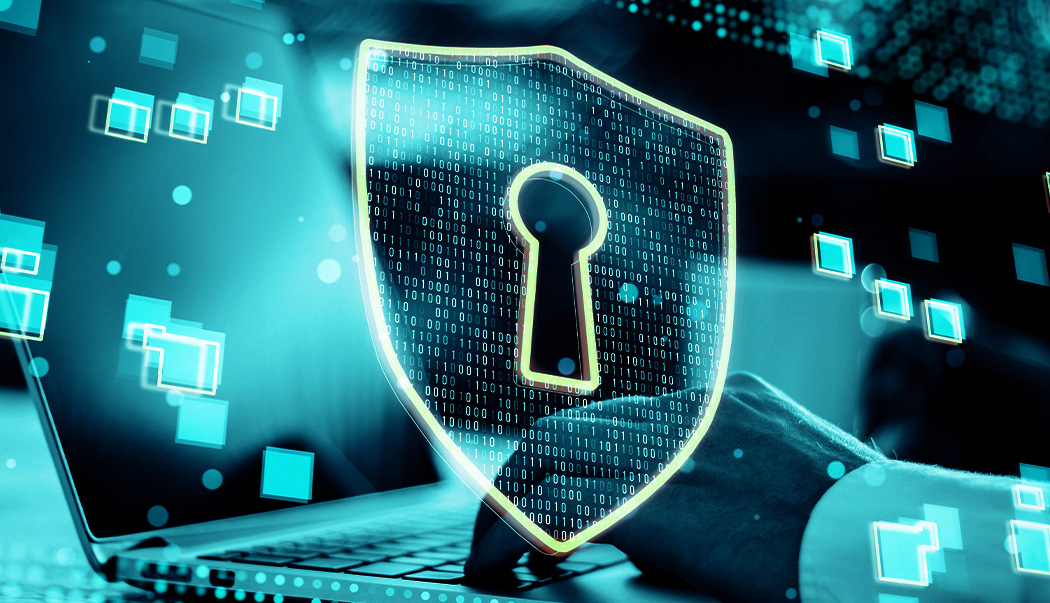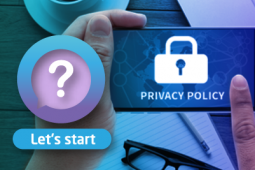I want to be aware of how and with whom I share my personally identifiable information.
Fostering Online Integrity Guiding Principles for Digital Citizenship

Online integrity is essential for maintaining trust and respect in virtual interactions in the digital age. This concept underscores the importance of honesty, respect, and ethical behaviour in the digital world. Many of us if not all have been in a position to copy and paste without double checking the information we provide/share as well as forgetting to cite the source, which could lead to (legal) trouble and trust loss. Therefore, understanding and practicing online integrity is crucial to building a trustworthy and positive online environment for teens and educators. This article explores the importance of online integrity, key strategies for maintaining it, and educational initiatives that can foster these values in digital spaces.
Importance of Online Integrity.
It would help if you made conscious choices to be truthful, respectful, and responsible in digital interactions. In a world where misinformation, cyberbullying, and privacy breaches are uncontrolled, maintaining online integrity is more critical than ever. By adhering to principles of online integrity, you can protect yourself and others from the harmful effects of unethical online behaviours.
For teens, online integrity means being honest in social media, exams, and digital chats, while respecting privacy and avoiding harmful behaviours. Educators should model these behaviours and teach their importance, playing a key role in digital citizenship education.
Key Strategies for Maintaining Online Integrity.
- Think Before You Act. Consider the potential impact of your actions online. Thoughtfulness can lead to positive long-term outcomes and prevent harmful consequences. Before posting, sharing, or commenting, take a moment to reflect on how your actions might affect others and your digital reputation.
- Verify Information. Ensure the accuracy of content before believing or disseminating it. Sharing false information can harm others and damage your credibility. Always cross-check facts and sources before sharing news or information online. This practice protects others from misinformation and upholds your integrity as a reliable source of information.
- Respect Privacy. Avoid invading others' privacy or tampering with personal data. Respecting privacy is a cornerstone of online integrity. Do not share private information without and consent and be mindful of the privacy settings on your digital accounts to protect your information and that of others.
- Be Accountable. Take responsibility for your online actions and make amends if necessary. Owning up to mistakes and learning from them fosters a culture of integrity. If you post something incorrect or harmful, address it directly and apologize if needed. Accountability builds trust and demonstrates your commitment to ethical behaviour.
Educational Initiatives and Programs.
To effectively promote online integrity, as a teacher, you can implement various initiatives emphasizing the importance of ethical behaviour in digital spaces. These initiatives can help students develop a deeper understanding of online integrity and provide them with practical tools for maintaining it.
- Workshops on Digital Literacy and Cyber Ethics. Hold workshops on digital literacy and cyber ethics to equip students with the skills to use the digital world responsibly. These sessions should address topics like identifying fake news, safeguarding personal information, and the effects of cyberbullying. Use real-life examples to highlight the importance of online integrity and involve students in conversations about ethical online conduct.
- Peer Mentoring Programs. Encourage older students to mentor younger peers, guiding them on responsible digital practices. Peer mentoring programs can foster a supportive environment where students feel comfortable discussing their online experiences and seeking advice. Mentors can lead interactive sessions on various topics, including verifying information, respecting privacy, and being accountable for online actions.
- Partnerships with Local Organizations. Collaborate with organizations specializing in digital safety and ethics to bring valuable resources and expertise to schools. These partnerships can provide students with additional learning opportunities and reinforce the importance of online integrity. Experts from local organizations can conduct workshops, offer resources, and share real-life stories highlighting the significance of maintaining integrity in digital spaces.
Practical Applications of Online Integrity.
You can apply the principles of online integrity in your daily digital interactions. Here are some practical applications:
- Creating a Positive Digital Footprint. Think about the long-term impact of your online actions and strive to create a positive digital footprint. This involves sharing positive content, engaging in respectful discussions, and avoiding behaviours that could harm others or your reputation.
- Promoting Digital Respect. Foster a culture of respect in digital interactions by treating others with kindness and empathy online. This includes refraining from cyberbullying, supporting peers who may be victims of online harassment, and promoting inclusive and respectful communication.
- Implementing Digital Citizenship Curricula. Integrate digital citizenship curricula into the school program to provide students with a comprehensive education on online integrity. These curricula can include lessons on digital literacy, ethical online behaviour, and the importance of maintaining integrity in all digital interactions.
- Using Technology to Support Integrity. Utilize technological tools that promote online integrity, such as plagiarism checkers, fact-checking websites, and privacy protection software. Introduce these tools to students and teach them how to use them effectively to uphold integrity in their digital activities.
Finally, stay safe and don’t forget!
Promoting online integrity is a shared responsibility that requires the active participation of both teens and educators. We can create a safer and more respectful digital environment by fostering a culture of honesty and respect online. Through these efforts and by incorporating these strategies and educational initiatives, you can empower students to navigate the digital world responsibly and ethically. Together, we can promote a culture of online integrity that benefits everyone and contributes to a safer, more respectful digital community.
@2x.png)


















